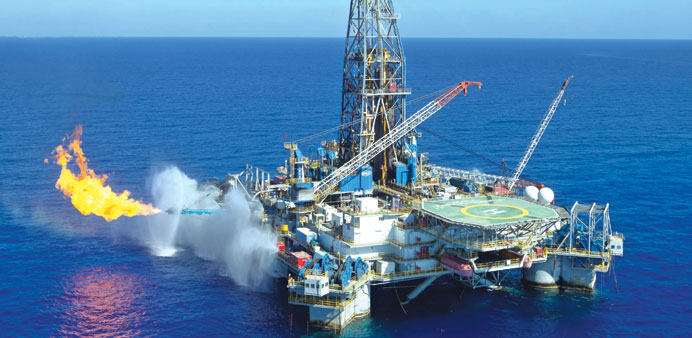About $100mn at stake, seen as not enough to break deal; talks ongoing, differing views on when resolution likely; extra pipeline requirement seen pushing costs over budget; Israel kept right to take greater gas share in emergency
A tax dispute between Israel and Australia’s Woodside threatens to delay gas production from the flagship Leviathan field, while the government is also forcing oil firms to spend more on pipelines than they expected.
Israel is preparing to become a supplier of liquefied natural gas (LNG) around the end of the decade, when Qatar, Australia, Russia and North America are also boosting their presence in the market. Timing will be important to securing market share.
By bringing in Woodside, an LNG specialist, to take a quarter stake worth up to $2.7bn, the US-Israeli group of oil companies developing the project and its 540bn cu m of reserves are looking to access a broader market, especially in Asia.
In the tax dispute, the government wants to depreciate Woodside’s initial $1.2bn investment over the 30-year lifespan of the Leviathan field, while the company argues for a shorter 10-year term, a source close to the talks said.
A shorter depreciation period shields more of Woodside’s investment from tax. At stake is a sum of up to $100mn, a source at one of Woodside’s partners said, meaning it is unlikely to be a deal-breaker.
“The question is how to tax Woodside’s initial investment, down payment in the project and what type of tax structure they receive,” the source said.
Other points under discussion include the tax treatment of the investment itself.
“Treating it as a loan could mean that all of it is tax-free, whereas treating it like a capital investment removes that tax shield,” the first source said.
It is only the latest dispute between Woodside and the government. Tensions first arose a month ago, when the finance ministry moved to halve Woodside’s previously agreed investment return.
Woodside had been banking on 17% to 19% of the profits made from Israeli gas sales to Asia, but the government offered just 6% to 8%, the first source said.
Last week Woodside pulled out of a high-profile signing ceremony for its purchase of the quarter stake, while talks with the government continued.
A spokeswoman for the Israel Tax Authority declined to give any details on the issues being discussed, but said both sides had agreed the talks would continue.
Officials at the Finance Ministry did not comment.
“Most of these outstanding issues have been resolved and agreed upon. The disagreement is over the taxation of the investment, not the gas exports,” the second source said.
The industry expects first Israeli LNG output from around 2021. The talks are expected to be concluded in several weeks following the Jewish Passover holiday later this month, the second source said.
Others said, however, that a resolution could be further off. All voiced optimism that a compromise could be reached.
At the same time that tax issues delay the entry of a critical partner for realising Leviathan’s export potential, the government seized an opportunity last week to pin down infrastructure commitments from the other Leviathan investors. As part of a 30-year field lease sale to the four existing stakeholders - Noble Energy, Delek Drilling, Avner and Ratio Oil - the government secured pledges for the construction of 12bn cubic metres (bcm) of pipeline capacity from Leviathan to Israel.
One clause in the lease may require investors to build pipeline capacity for potential exports to neighbouring Egypt, Turkey and to a proposed gas liquefaction plant offshore.
“Noble and Delek of course don’t like this as it implies more investment and could make the project a billion (dollars) or more over budget,” the first source said.
The partners also would be required to build the added capacity on an “open access system”, which would open the infrastructure for use by other companies.
The lease follows a year of negotiations and debate over how much of its gas Israel should keep at home, a sensitive issue after it suffered an abrupt cut in Egyptian gas supplies in 2012.
Israel’s cabinet last year ruled that only 40% of its new gas could be exported, disappointing exploration companies which initially expected a larger share.
Another condition of the lease stated, as expected, that exports from Leviathan cannot interfere with flows to Israel of at least 9 bcm.
Israel also reserved the right to divert any Leviathan output for domestic uses at times of national emergency. That clause will not apply, however, to gas volumes pre-sold to foreign consumers, protecting would-be exporters such as Woodside.
Export pipelines heading out of Israel for Egypt or Turkey will need to be linked back to pipelines carrying gas to Israel as a fail-safe in case the domestic line is bombed or malfunctioning, industry sources said.

